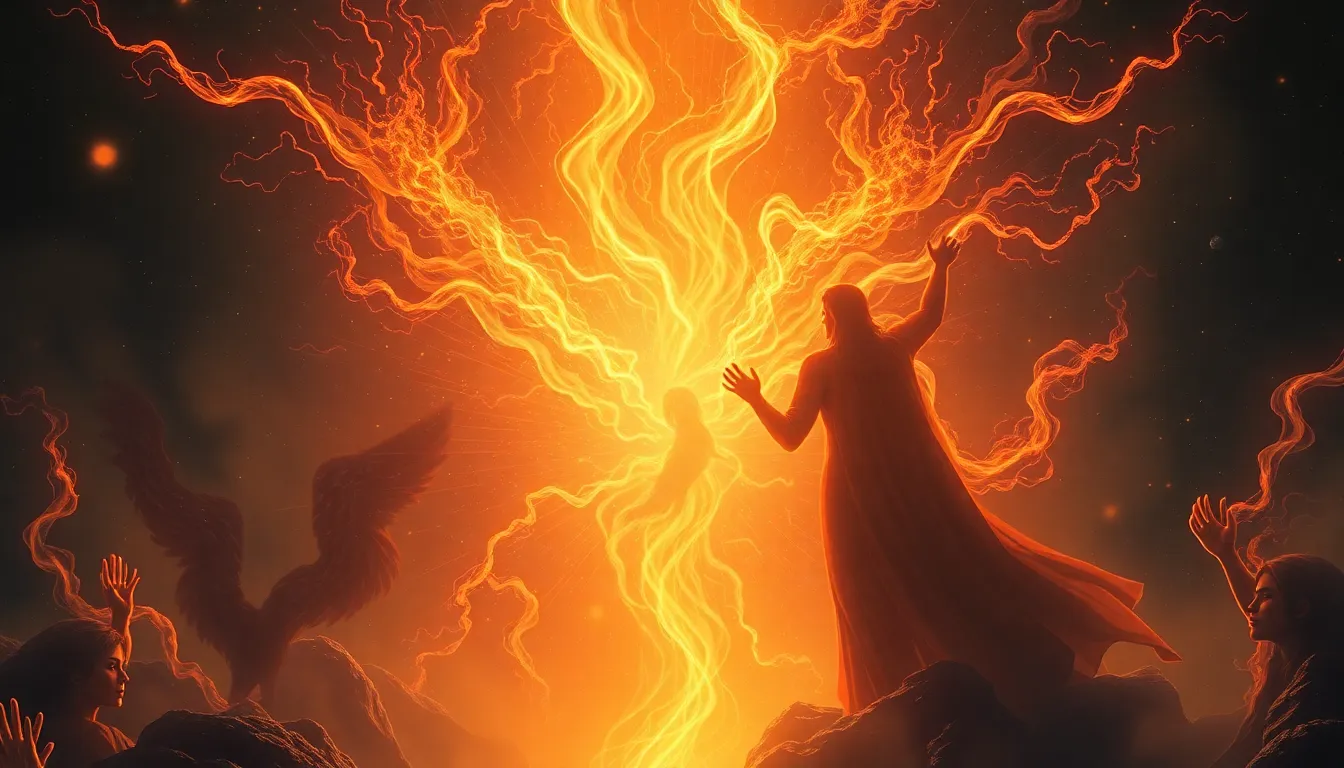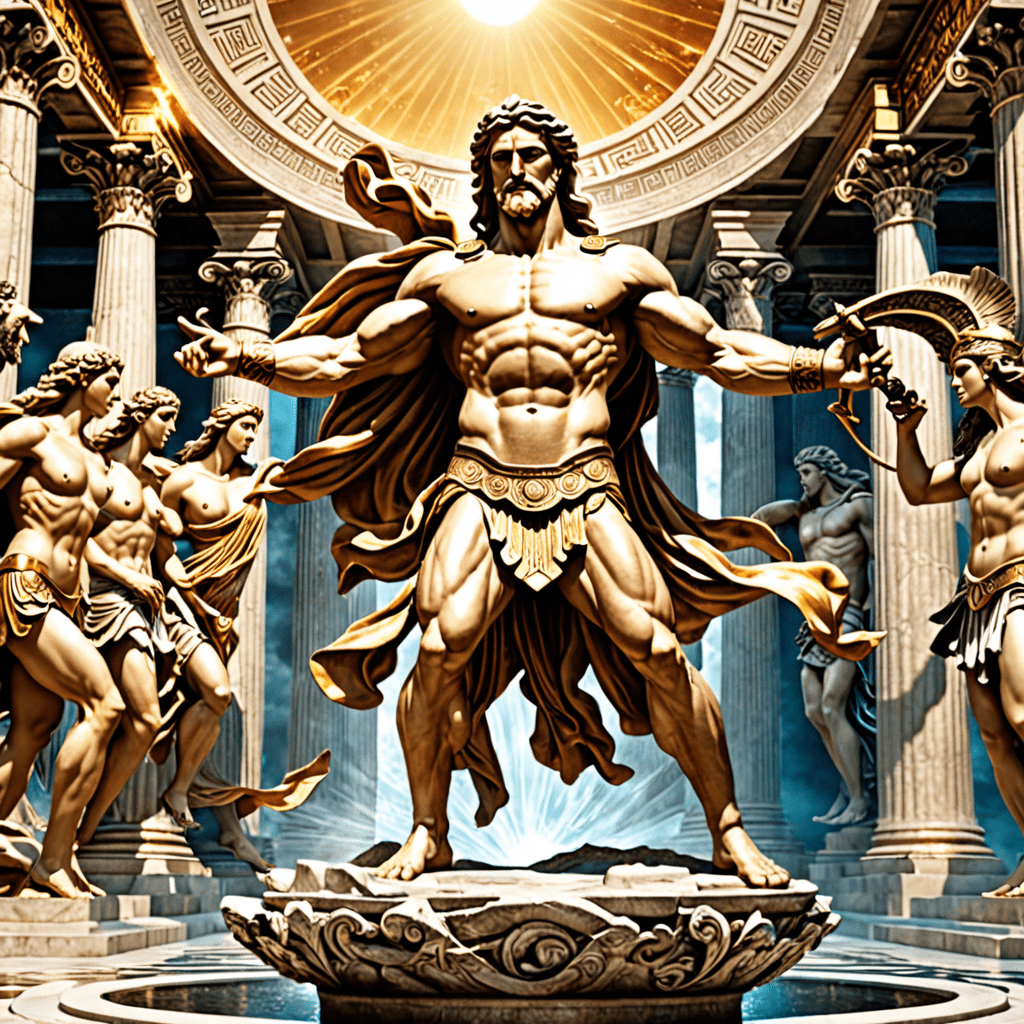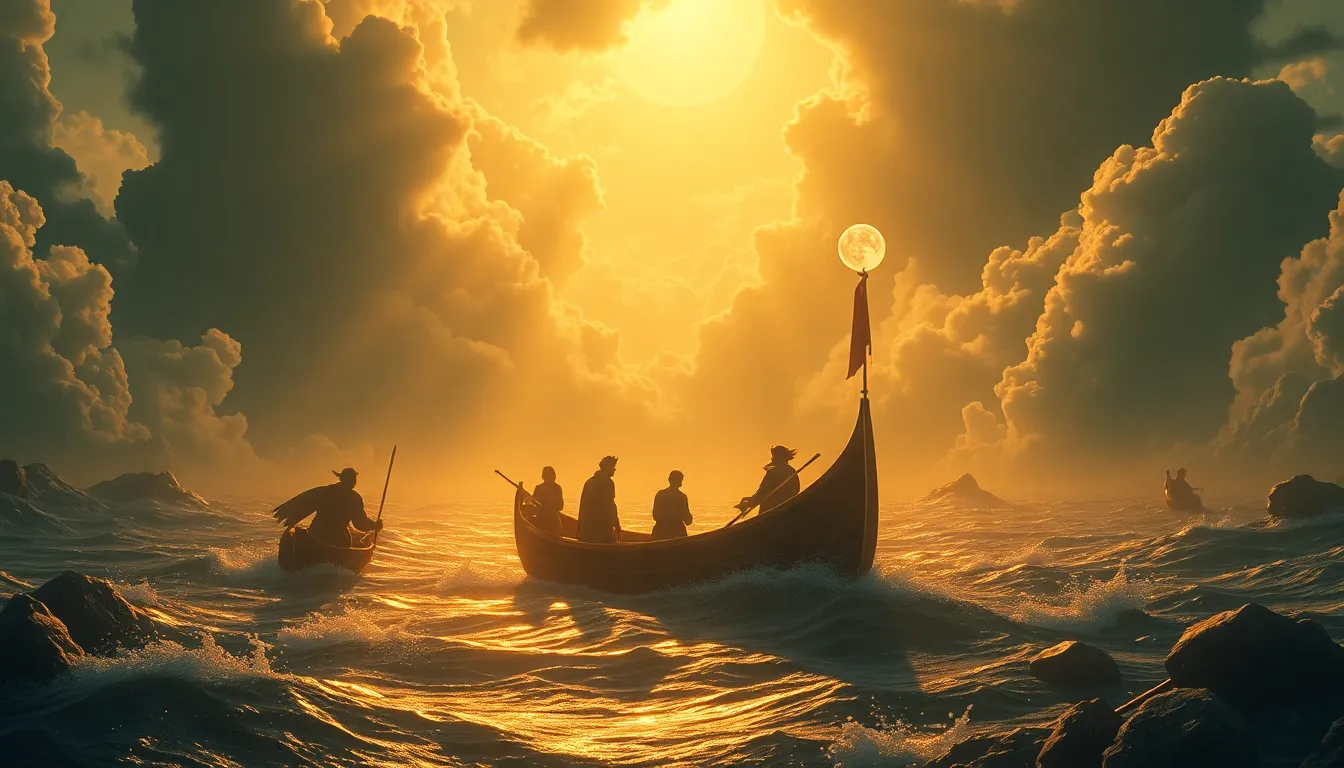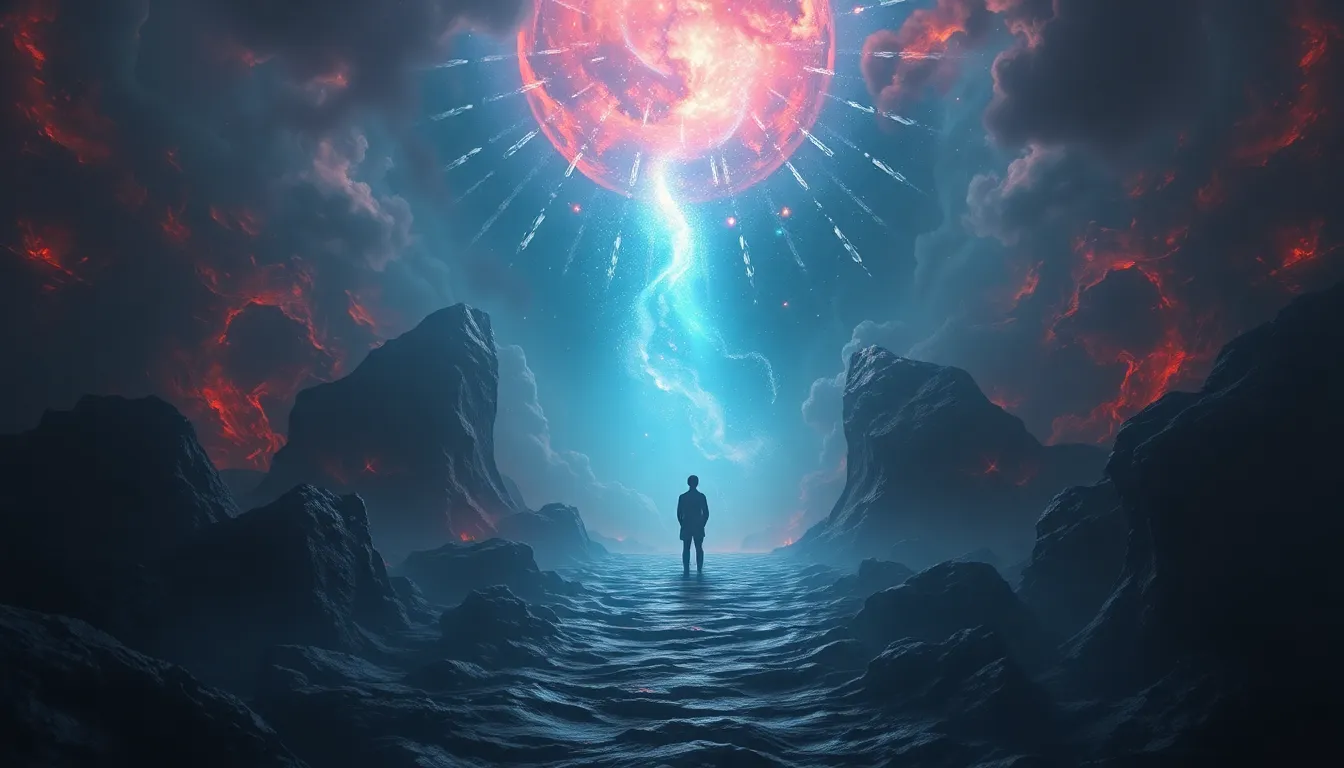The First Breath: Creation Myths That Define Humanity
I. Introduction
Creation myths are foundational narratives that explain the origins of the world, humanity, and the cosmos. These stories are significant because they provide insight into the beliefs, values, and cultures of societies throughout history. They serve not only as explanations for existence but also as frameworks for understanding human identity and purpose.
The impact of creation myths on culture and identity is profound. They shape moral values, social norms, and traditions, influencing how communities perceive their place in the universe. This article aims to explore various creation myths from around the world, examining their themes, significance, and enduring relevance.
II. The Concept of Creation in Human History
The role of creation myths in early societies cannot be overstated. They were essential in helping communities make sense of their surroundings and the mysteries of life. Creation myths allowed people to articulate their experiences and establish a shared narrative that fostered social cohesion.
Oral traditions played a crucial role in the transmission of these myths before the advent of written records. Stories were passed down through generations, evolving with each retelling. With the introduction of writing, many creation myths were documented, preserving them for future generations. This transition posed a fascinating comparison between the fluidity of oral traditions and the fixed nature of written records.
The psychological and sociological implications of creation stories are significant. They address fundamental questions about existence, purpose, and morality. Myths often provide comfort in the face of uncertainty, helping individuals navigate the complexities of life.
III. The Genesis Narrative: Judeo-Christian Perspectives
The Genesis creation story is one of the most well-known narratives in the Judeo-Christian tradition. It describes how God created the world in six days, culminating in the creation of humanity in His image. The themes of divine order and purpose are prominent, as each act of creation is followed by the declaration that it was “good.”
Humanity’s role in the Genesis narrative is significant; humans are depicted as caretakers of the Earth, entrusted with the responsibility of stewardship. This narrative has had a profound cultural impact on Western thought, influencing concepts of morality, ethics, and the relationship between humanity and the divine.
IV. The Enuma Elish: Babylonian Creation
The Enuma Elish is a Babylonian creation myth that presents a dramatic narrative of creation through conflict. The story begins with the primordial waters of chaos and describes the battles between gods, ultimately leading to the establishment of order. Marduk, the chief god, defeats the goddess Tiamat and creates the world from her body.
This myth highlights the significance of chaos and order in the creation process. The struggle between these forces reflects the complexities of existence and the balance necessary for life. The Enuma Elish influenced subsequent Mesopotamian cultures, embedding themes of divine authority and cosmic order into their worldviews.
V. Creation Myths in Indigenous Cultures
Indigenous cultures around the world possess a rich tapestry of creation stories, each reflecting the unique relationship between the people and their environment. These myths often emphasize the interconnectedness of all life and the importance of nature.
For example, the Dreamtime of Australian Aborigines presents a world where ancestral spirits created the land, animals, and people. Similarly, Native American creation stories often feature themes of harmony with nature and respect for the Earth.
- The Dreamtime: A complex set of stories explaining the creation of the world and the connection to the land.
- Native American Myths: Diverse narratives emphasizing the relationship between nature and humanity.
VI. Hindu Cosmology: The Cycle of Creation and Destruction
Hindu cosmology offers a unique perspective on creation, focusing on a cyclical understanding of existence. Myths contained in texts such as the Rigveda and Puranas describe the universe’s creation, preservation, and eventual dissolution.
Key deities in Hinduism—Brahma (the creator), Vishnu (the preserver), and Shiva (the destroyer)—embody the cosmic cycles of creation and destruction. This cycle reflects the philosophical implications of reincarnation and the concept of dharma, or duty, influencing how individuals perceive their roles within the universe.
VII. The Cosmic Egg: Myths from Around the World
The “world egg” motif is a recurring theme in various cultures, symbolizing potential and the origins of life. In Chinese mythology, for instance, the universe emerges from a cosmic egg, while in Finnish mythology, the world is created from the fragments of an egg.
This symbolism underscores the idea of creation as a process that begins with potential and evolves into reality. The significance of the egg in understanding human origins lies in its representation of life, fertility, and the universe’s interconnectedness.
VIII. Scientific Perspectives on Creation and Humanity
The intersection of creation myths and scientific theories presents a fascinating dialogue between belief and empirical understanding. The Big Bang theory and the theory of evolution offer scientific explanations for the origins of the universe and the development of life, respectively.
Many people grapple with reconciling these scientific perspectives with their cultural or religious beliefs. Myths continue to play a role in shaping human curiosity and inquiry, prompting questions about existence, purpose, and the nature of reality.
IX. The Modern Relevance of Creation Myths
Creation myths retain a modern relevance, influencing contemporary beliefs and values. As societies become more diverse, the resurgence of interest in myth reflects a desire to explore identity and meaning in a complex world.
In an age marked by scientific advancements, creation myths provide a narrative framework that addresses existential questions and fosters a sense of belonging. They remind us of our shared human experience and the timeless quest for understanding our origins and purpose.



